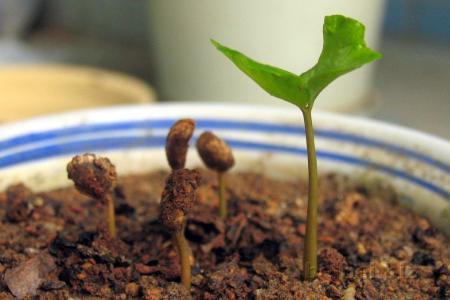Coffee consumption in China is growing at an annual rate of 25%-while the average growth rate of coffee consumption in the world is
Although China's coffee consumption is facing an embarrassing situation, the sustained rapid growth in consumption has also made industry insiders optimistic about the development prospects of China's coffee industry.
China is now one of the fastest growing coffee consumers in the world. China's coffee consumption is currently around 200 billion yuan. Consumption is growing at a rate of 25 per cent per year, compared with an average growth rate of 2.5 per cent worldwide.
Xiong Xiangren analyzed that China has become the largest consumer of many commodities due to its large population. The Chinese consume 30% of global rice production, but drink only 1% of global coffee sales, and the growth potential is huge. Xiong Xiangren said: "The huge potential of China's coffee consumption market will continue to grow with the development of China, the world's second largest economy." Regarding the prospects for China's coffee development, he also said: "I dare to assert that within 10 years, China will become the world's third largest coffee consumption market after the United States and Brazil." At that time, whether China's coffee industry can emerge such as Nestle, UCC and other international famous brands, it depends on our Chinese coffee enterprises.
According to the data, coffee as an international bulk trade commodity, the global coffee output in 2015 is about 8.5 million tons, Brazil, Vietnam, Indonesia and other major producing countries accounted for 70% of the world coffee output. Last year, the global coffee consumption market was about 12 trillion yuan, the United States is the largest coffee consumption market, annual consumption of about 3 trillion yuan, while China's coffee consumption market is about 70 billion yuan

Important Notice :
前街咖啡 FrontStreet Coffee has moved to new addredd:
FrontStreet Coffee Address: 315,Donghua East Road,GuangZhou
Tel:020 38364473
- Prev

Kenya launches a coffee brand-improve competitiveness in domestic and international markets
Although Kenya accounts for only about 1% of the world's total coffee production, coffee beans are popular in the international market because of their unique quality. For a long time, Kenyan coffee has been sold by grades without a brand logo, so the value of coffee has been greatly undervalued. Analysts pointed out that if Kenyan coffee is affixed with its own brand and then sold, it will indicate the uniqueness of the coffee.
- Next

The import tariff of coffee in the Chinese market is 15% and the VAT on the import link is 17%.
Customs value is: (factory ex-factory freight) x1.15 x 1.17 delivery price is: customs value x1.03, but the above price does not include the following fees. 1) Application fee for Chinese label. (dealers can apply for Chinese labels from the Commodity Inspection Bureau or entrust this website to apply) 2) Shanghai Port extra fees and customs, three inspection fees, inspection fees: refers to shipping: dredging fee,
Related
- What is the difference between Indonesian Sumatra Mantinin coffee and gold Mantinin? How to distinguish between real and fake golden Mantelin coffee?
- What does bypass mean in coffee? Why can hand-brewed coffee and water make it better?
- Unexpected! Ruixing Telunsu lattes use a smoothie machine to foam milk?!
- % Arabia's first store in Henan opens into the village?! Netizen: Thought it was P's
- Does an authentic standard mocha coffee recipe use chocolate sauce or powder? Mocha Latte/Dirty Coffee/Salty Mocha Coffee Recipe Share!
- What is the difference between Vietnam egg coffee and Norway egg coffee? Hand-brewed single product coffee filter paper filter cloth filter flat solution!
- What is the difference between sun-cured and honey-treated coffee? What are the differences in the flavor characteristics of sun-honey coffee?
- How to make Italian latte! How much milk does a standard latte use/what should the ratio of coffee to milk be?
- How to make butter American/butter latte/butter Dirty coffee? Is hand-brewed coffee good with butter?
- Is Dirty the cold version of Australian White? What is the difference between dirty coffee/decent coffee and Australian white espresso?

